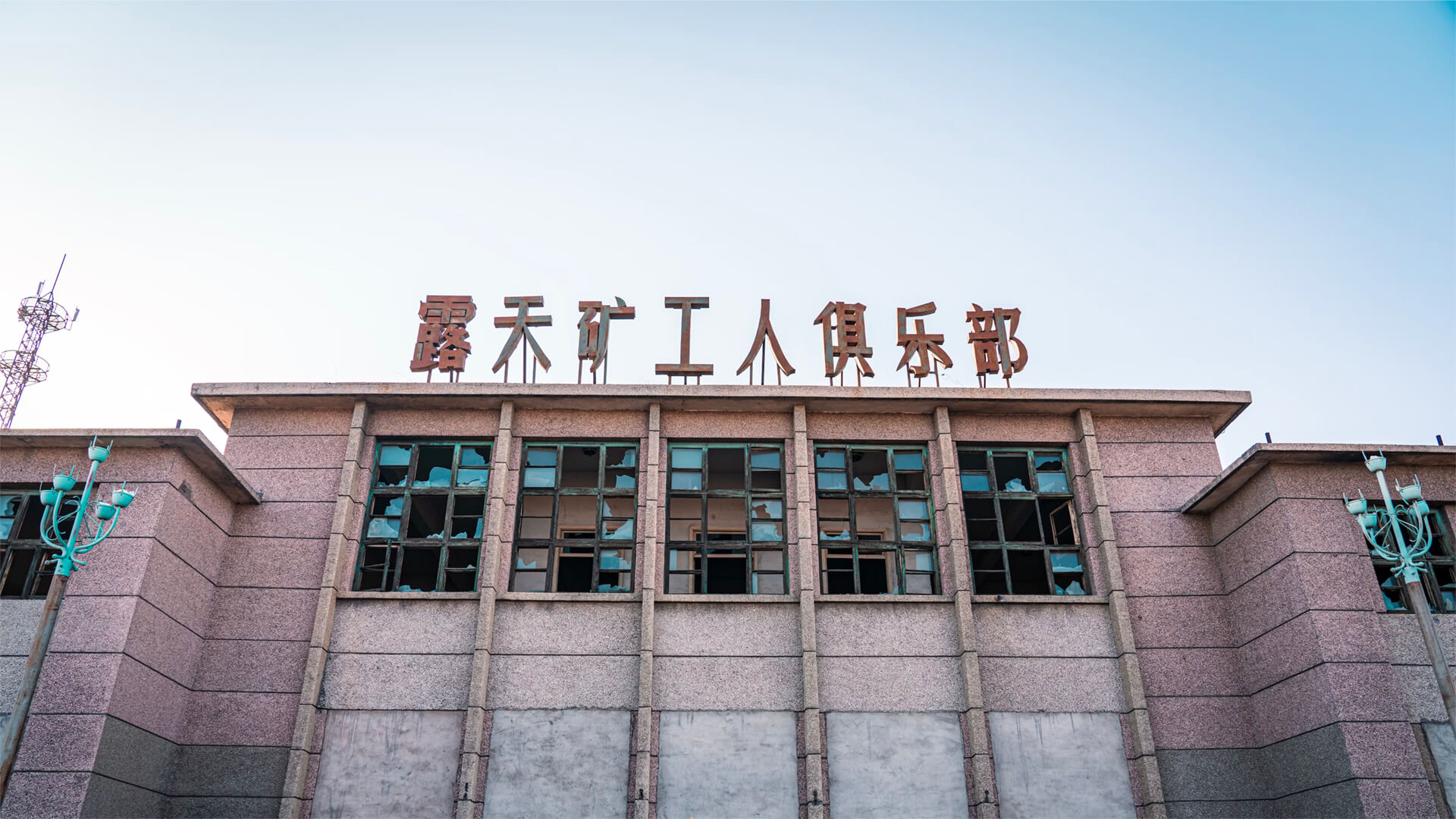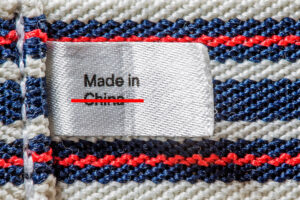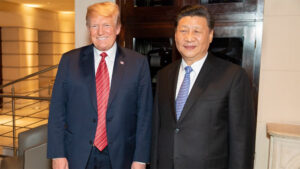It’s time to come out from under your rock and face the music – China is collapsing. If that comes as a shock to you, I have two recommendations. First, it might be time to refresh your news feed. Second, the Chinese have concealed this fairly well, so watch this video to get up to speed.
Whether you look at it from a domestic, international, heck, or even extraterrestrial point of view, the Chinese system is riddled with issues that are becoming increasingly apparent. Between economic issues, a crumbling political system, awful demographics, and a long list of other problems, China’s collapse should no longer surprise anyone.
Now that you’ve been warned, you need to ask yourself: are you ready? Between disruptions to global supply chains and a myriad of other issues, the world better be prepared to manage the fallout.
Here at Zeihan On Geopolitics we select a single charity to sponsor. We have two criteria:
First, we look across the world and use our skill sets to identify where the needs are most acute. Second, we look for an institution with preexisting networks for both materials gathering and aid distribution. That way we know every cent of our donation is not simply going directly to where help is needed most, but our donations serve as a force multiplier for a system already in existence. Then we give what we can.
Today, our chosen charity is a group called Medshare, which provides emergency medical services to communities in need, with a very heavy emphasis on locations facing acute crises. Medshare operates right in the thick of it. Until future notice, every cent we earn from every book we sell in every format through every retailer is going to Medshare’s Ukraine fund.
And then there’s you.
Our newsletters and videologues are not only free, they will always be free. We also will never share your contact information with anyone. All we ask is that if you find one of our releases in any way useful, that you make a donation to Medshare. Over one third of Ukraine’s pre-war population has either been forced from their homes, kidnapped and shipped to Russia, or is trying to survive in occupied lands. This is our way to help who we can. Please, join us.
Transcript
Hey everybody. Peter Zeihan here. Coming to you from home in Colorado. And if you haven’t been blind and immune, be marginally aware of international news. You know that the information out of China these past few weeks through July and August and into September has just been atrocious. Consumer spending is down. Lending is down, which should never happen in a country that is just capitalist driven.
The Chinese basically force feed capital into everything, and so lending should always be going up. And it’s not. We’ve had the foreign minister go missing and then be dismissed, the same as now happening for the defense minister or the head of the missile forces. Information that’s coming out about youth unemployment is atrocious, so they just stop collecting the data altogether.
Information on bond transactions is gone. And if you’re going to try to get into a more sustainable economic structure, you obviously need a bond market. They’re not collecting information on patterns anymore. So supposedly the moving up, the value added scale that the Chinese been talking about for years is now not even part of the plan. It feels like we’re looking at a broad scale societal and economic and political breakdown, and we are.
The shock, though, is that this is all happening at once. And after years, if not decades, of the story of rising China and hearing that from Beijing and oftentimes from political parties in the United States and around the world, for it to all of a sudden go completely inverted due seems like quite a shock. But here’s the thing.
It hasn’t all been happening at once. It’s just that this is when we’re noticing it. If you look back on the last few years, things have been odd in all things China. So first, let’s deal with this from the outside point of view and then from the inside point of view. So outside think of what’s gone on the last few years.
We’ve got the Ukraine war. We’ve got the Iranians on the warpath. We had four years of the Trump administration and we had two years of a more internally focused situation. And the Biden administration, the Europeans were dealing with the tail end of their financial crisis. The Japanese have been preoccupied with the demilitarization program. Everyone has been dealing with their own stuff, and it’s only kind of now that the noise out of China has gotten so loud that we’re even noticing that it’s not good news anymore.
As for the Chinese. Two big things. Number one, COVID killed the COVID. COVID cozied for three years. It was nothing but COVID in any sort of statistical release or news out of China was always viewed through the eyes of COVID and even if there was bad news, you could always lay that at the altar of growth. IT consumption was down a quarter.
That’s COVID problems with supply chains. That’s clearly with COVID problems with linked in their industrial production to news in the wider world. That was because we adjusted our consumption because of COVID. And so we’re only now kind of getting our first good look after years of COVID and then also within the Chinese system, that had a significant shift.
But when Chairman Xi, he started a series of purges under the guise of the like corruption campaign. And in his first five years, he removed every regional power center so he could never rise to national prominence. And then he went through and gutted the two factions of the previous presidents, Hu Jintao and Jiang Zemin, that put them in power to make sure that they could never come back.
And then he spent the last couple of years gutting the bureaucrats and the private sector of anyone who might be able to rise to national prominence. As part of that, he’s removed certain sorts of data collection to make sure that they can’t assist anyone from rising. So, for example, college dissertation, the information is not published anymore. It’s probably not even collected anymore.
So no one can take the economic route to prominence. And political biographies are no longer put together by the state. So any sort of local politician or younger politician has no way to rise in the situation that might down the road and generate a potential rival. So we’ve seen this ever tightening information vacuum across the Chinese space. All of these things have been going on for five and six years.
And during that five and six year period, we had an inflection point that was absolutely the high point of the Chinese system, and that’s largely demographic. We still don’t have what I would consider to be truly accurate information. But the most recent full data to be released by the Chinese in the last two three months tell us that the birth rate has dropped in China by nearly 70% since 2017.
That’s the fastest drop in the historical record of China, of humanity throughout all of recorded history. And in that timeframe, if the Shanghai Academy of Sciences is right, they’ve all recounted their population made over 100 million people, all of whom would have been working age people under age 40, meaning that in the last five or six years they’ve had that just peak workforce and the last year peak workforce probably in the earlier part of that process.
And they just don’t have enough millennials to do consumption at all. And we’ve seen the cost of the workforce increase by a factor of 14 or 15 in the last 22 years. So in the last five or six years in China, if you could somehow have a crystal ball and have access to all the data, especially the supplement collecting anymore, we would see that they’ve already fallen off the cliff and it’s only in the last few months that it’s become so obvious that it’s cut through the clutter and the noise and the preoccupations we all have with everything else in our lives.
And now it’s obvious that this system is breaking down. The demographic collapse is not correctable. There are not enough people under age 40 for them to even try, even if they had the macroeconomy, the structures that allowed or encouraged people to have families of the role. And we’re seeing an ever increasing rate of decline in terms of their industrial competitiveness.
On top of that, we have the issues with the Ukraine, where with China’s starting to come into the crosshairs of sanctions. We have China being more and more exposed to energy and food insecurity because the Europeans have taken everything else that is proximate to them. So they don’t have to use Russia and the infrastructure between Russia and China is so thin that stuff has to go out west past Europe through the Suez War around Africa and around India and around Vietnam before getting there, making it the most exposed supply lines in the world.
So we’re going to see more disruptions moving forward based on what’s going on in China with demographics and political situation. And we’re all certainly going to see disruptions in their ability to access the wider world for trade, merchandise exports. And that before you consider that the Biden administration is the most protectionist administration the United States has had, at least in a century, far more so than Donald Trump.
So the Chinese are getting hit from every single angle and Chairman Xi is so purged the system that it’s an open question whether he can even become aware in a reasonable amount of time that something needs to be done, much less have the capability to come up with a coherent policy to deal with whatever the issue is as it arises.
So demographically speaking, we know that this is China’s final decade as a coherent economic power, but now we see exposure and political failure that absolutely can bring that date forward. And that assumes that no one in Washington or London or Japan or the rest put their fingers on the scale and push this forward. This has been coming for a long time, but because of all the noise, we missed a lot of the signals in the last five years of just how quickly it was coming and now it’s here.
The biggest risk in all of this is whether or not we have enough time to adapt. If things like construction spending for industrial projects in the United States have risen to a level we didn’t even see in World War Two, the pace of the industrial expansion and the reshoring trend really is huge. Should have hopefully started five years earlier by better late a mother.
The biggest concern I have now is that the information vacuum out of China is so complete and the decision making capacity in China has so collapsed and the pace of decline is now so steep. And the fact that we’re coming so late to the understanding of all of these things means that we might not all realize the China really is broken until the product simply stops arriving.
There’s a lot of industrial demand for product in this country for things like transmission towers and transformers and other industrial equipment that is necessary to build out the industrial plant here that’s still made in China that we’re still depending upon. And some of these things already have waitlists that are more than 36 months. But we might now be in a situation where it’s not obvious that this stuff is never coming until the shipments simply don’t arrive.
And at that point, we will be in a bit of a pickle because we will not build out our industrial plant fast enough in order to get by without the Chinese in the mid-term. That’s our biggest risk. Now, luckily, from an industrial growth point of view and an employment point of view, this is a good problem. But it does mean that the Chinese collapse is likely to cause a lot of follow on damage here because of shortage.
And the only way around that is to build more and make sure that we don’t need those products in the first place. Unfortunately, we need a lot of those products in the first place in order to get built or no real body around that except for to start yesterday.








